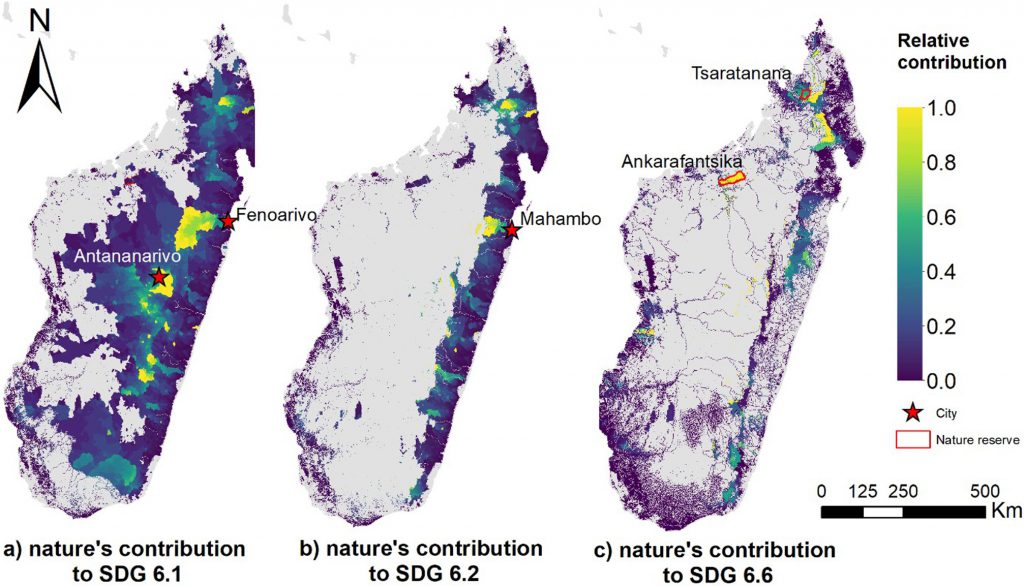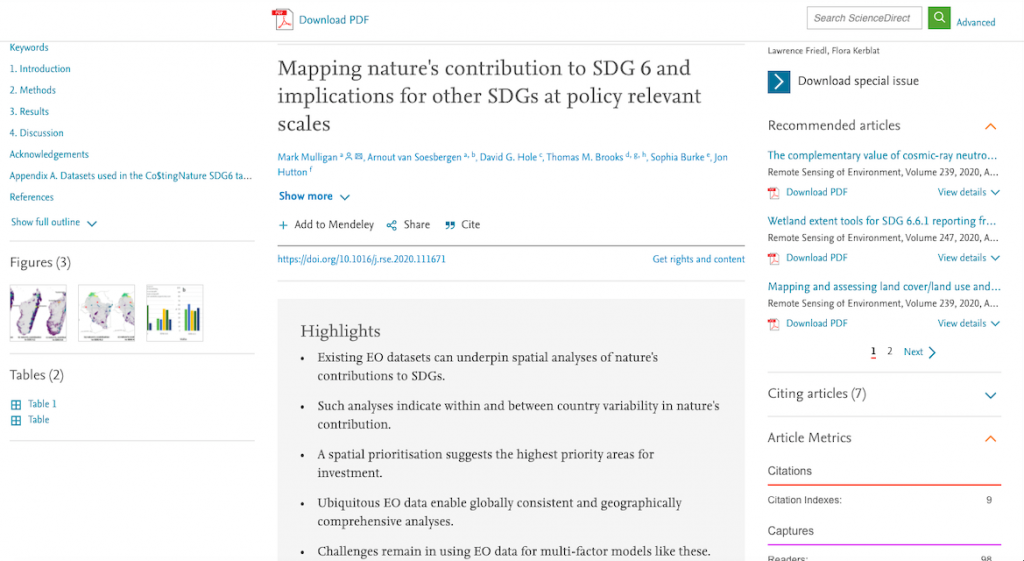
To celebrate World Water Day, we take a look at an important study featuring King’s Water members Mark Mulligan, Arnout van Soesbergen and their colleagues. They have revealed nature’s contribution to the United Nations sustainable development goal 6 (SDG 6), clean water and sanitation. Frequent readers of our blog will recall that our previous spotlight was focused on the need to uphold SDG 6 as a human right to address socio-economic inequality. By contrast, this article outlines the use of remote sensing and spatial ecosystem service modelling to understand nature’s contribution to SDG 6 provisions and any relevant contributions to biodiversity, climate action, and zero hunger.
By using the environment assessment tool Co$tingNature (developed by King’s College London), Madagascar and the Volta river basin became the paper’s case studies. As it would turn out, catchments upstream of Antananarivo and Fenoarivo are improving the quality of potable water for 72% of Madagascar’s population. Additionally, the Mahambo watershed and high areas draining west to Antananarivo have been critical to improving sanitation and hygiene for 31% of Madagascar’s population. The Volta river basin case study produced fascinating results. Catchments upstream of Bobo-dioulasso and Ouagadougou are improving the quality of potable water for 62% of people residing near the basin. Moreover, the Volta’s far north and border area with Mali are improving sanitation and hygiene for 15% of residents. To learn more about this ground-breaking study, clear here.
